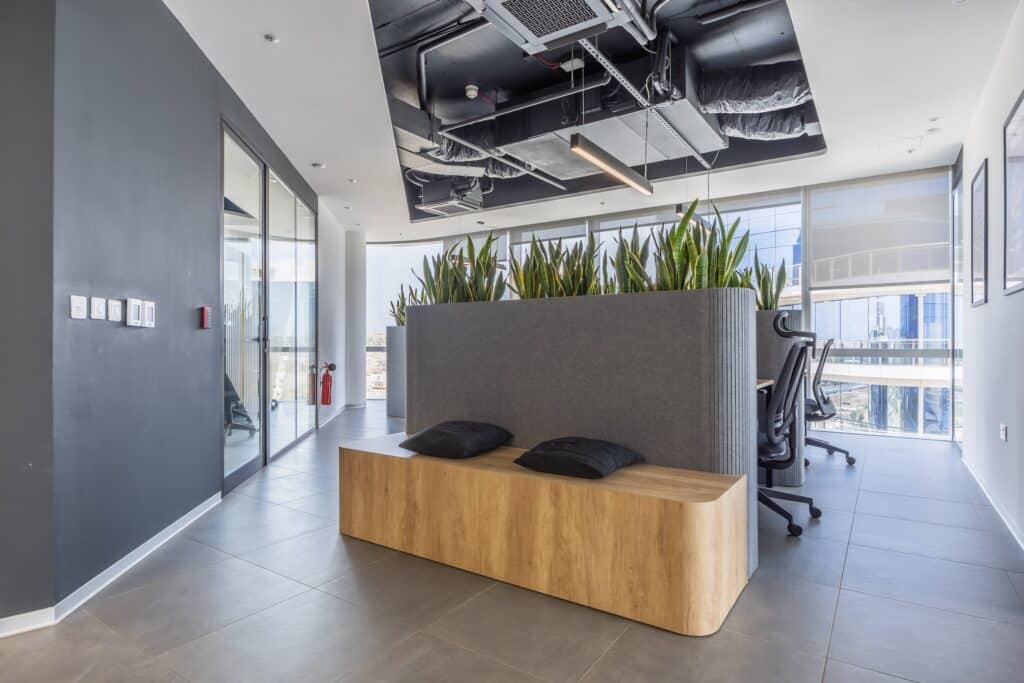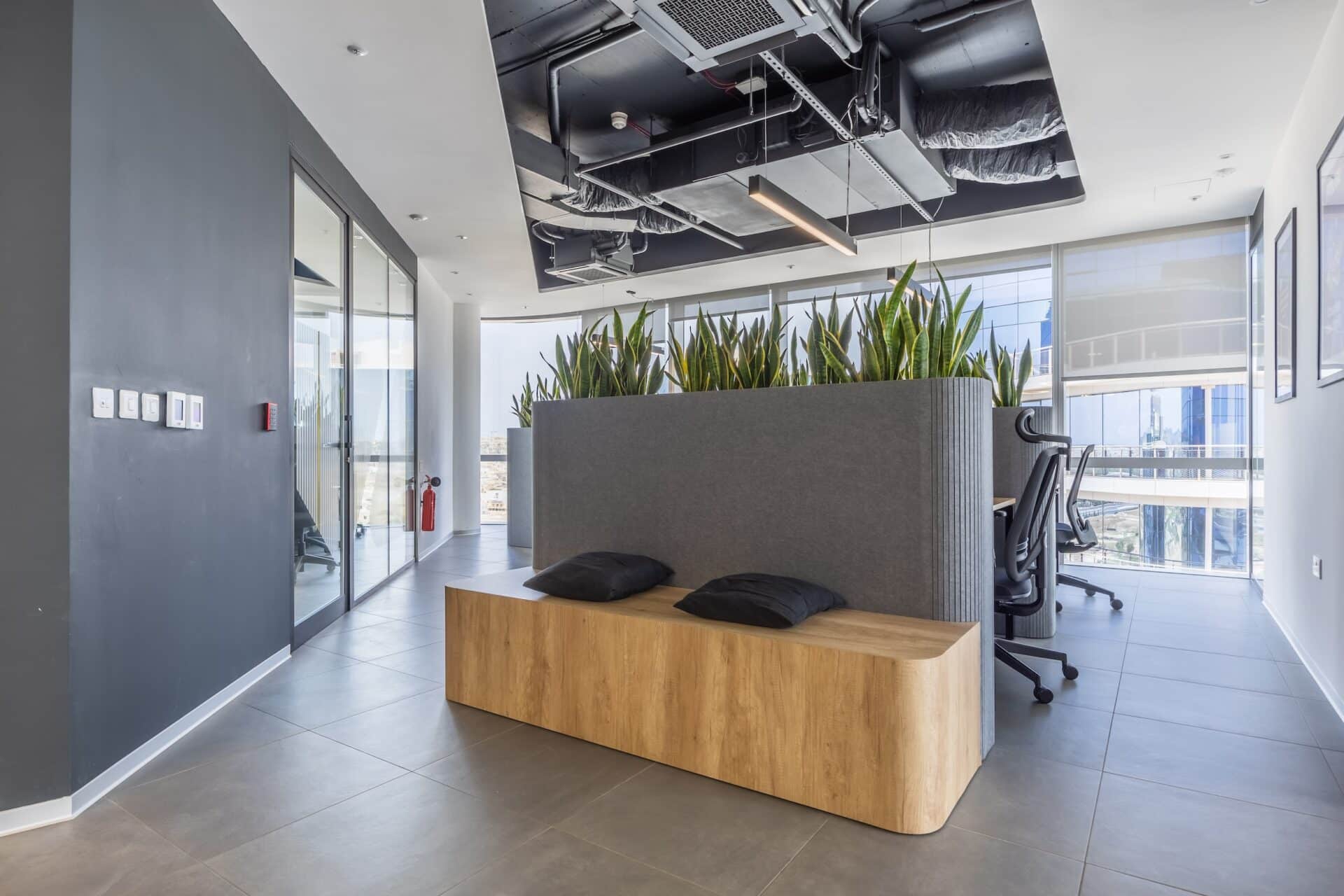
In today's fast- changing business environment, sustainability has become a cornerstone of strategic planning and corporate responsibility. Leadership in Energy and Environmental Design (LEED) certification, administered by the U.S. Green Building Council (USGBC), is a globally recognised symbol of sustainability achievement. Embracing LEED is a smart business move due to its environmental impact, immediate and long-term financial payoffs.
Leveraging the Mediterranean climate with sustainable building solutions,, Maltese businesses can convert local environmental features into profitable opportunities.
With an average of 300 days of sunshine per year, Malta makes an ideal environment for solar panel installations, providing a primary choice for enhancing energy efficiency, cutting electricity costs and reducing reliance on grid power. Improved insulation and reflective roofs maintain indoor temperatures, decreasing air conditioning needs and energy bills. Designing buildings for natural ventilation leverages Malta’s breezes to minimize mechanical cooling. Water conservation is achieved through rainwater harvesting for irrigation and efficient plumbing with low-flow fixtures, vital for an island with limited freshwater. Sustainable landscaping with drought-tolerant plants and drip irrigation further reduces water usage and maintenance costs. Waste reduction is supported by recycling and reusing materials, along with efficient construction waste management. Using durable, locally sourced materials cuts transportation costs and supports the local economy. Innovative design features like daylighting reduce the need for artificial lighting.
LEED-certified buildings are also highly sought after by eco-conscious tenants and buyers. Offering LEED properties enables construction firms and commercial real estate owners to tap into this lucrative market segment and stand out from competitors.
Research shows that buildings consistently achieve higher rents than their non-LEED counterparts which translates to long-term value for construction companies and their clients.
A European study on office building transactions found a 19 % price premium for buildings with green certifications compared to non-certified ones.
Apart from long-term financial strategies, sustainability brings immediate financial perks when it comes to utility bills and operating costs. LEED-certified buildings are designed to be highly energy-efficient due to their use of advanced technologies. Green buildings typically use resources more efficiently than other buildings, and because of this, operations and maintenance costs decrease.
Statistics show that green buildings reduce water use by 20% to 30% and cut CO2 emissions by up to 35%, enhancing asset value by 9%.
LEED's impact on health and productivity also translates into financial gains. A Harvard study found that people working in green buildings (well-ventilated offices with below-average levels of carbon dioxide and indoor pollutants) have better cognitive functioning, improved morale, and enhanced productivity, leading to reduced turnover and better workplace performance, with their improvements also resulting in cost savings and increased operational efficiency.
Green buildings achieve this through better ventilation, improved air quality & acoustics and increased natural light. LEED has a major impact on wellbeing, which means direct and indirect savings and improvements to people’s overall health, performance, and output.
Joseph Allen from Harvard's Healthy Buildings Program highlighted an interesting fact. We spend 90% of our time indoors, which makes up 90% of a building's costs. Despite this, indoor environmental quality and its impact on health and productivity are often overlooked. His study suggests that even modest improvements in indoor conditions can significantly enhance workers' decision-making performance.
As the demand for sustainable commercial buildings continues to rise, LEED certification serves as a catalyst in the competitive real estate market for increasing the resale value of buildings while promoting energy efficiency and sustainability.
As environmental regulations become stricter LEED certification ensures compliance and reduces the risk of costly retrofits in the future. Quad Central is the only LEED Platinum-certified building in Malta. With this achievement hopefully a new era has started for smarter, greener and more profitable buildings.
If you're planning a future-proof business, prioritise sustainability. Integrate eco-friendly practices to reduce environmental impact and costs while enhancing efficiency. Embrace innovations like renewable energy and efficient waste management to attract eco-conscious consumers and employees, ensuring long-term growth and relevance in an increasingly sustainability focused world.
About Quad Central
Quad Central, Malta's only LEED Platinum-certified development, sets a new standard for sustainability. Located at the island's heart in the Central Business District, this mixed-use complex offers over 44,000 square meters of premium office, retail, and commercial space. Designed for sustainability, it features energy-efficient systems, water conservation, and eco-friendly materials, enhancing Malta's green footprint.
Quad Central delivers a premium work environment and a community-centric lifestyle for all its occupants. Amenities include a childcare centre, fitness facility, retail, food and drink outlets, pharmacy, medical clinic, bicycle parking and ample public parking, ensuring convenience and well-being for tenants and visitors. Find out more about our offices to let in Malta.
